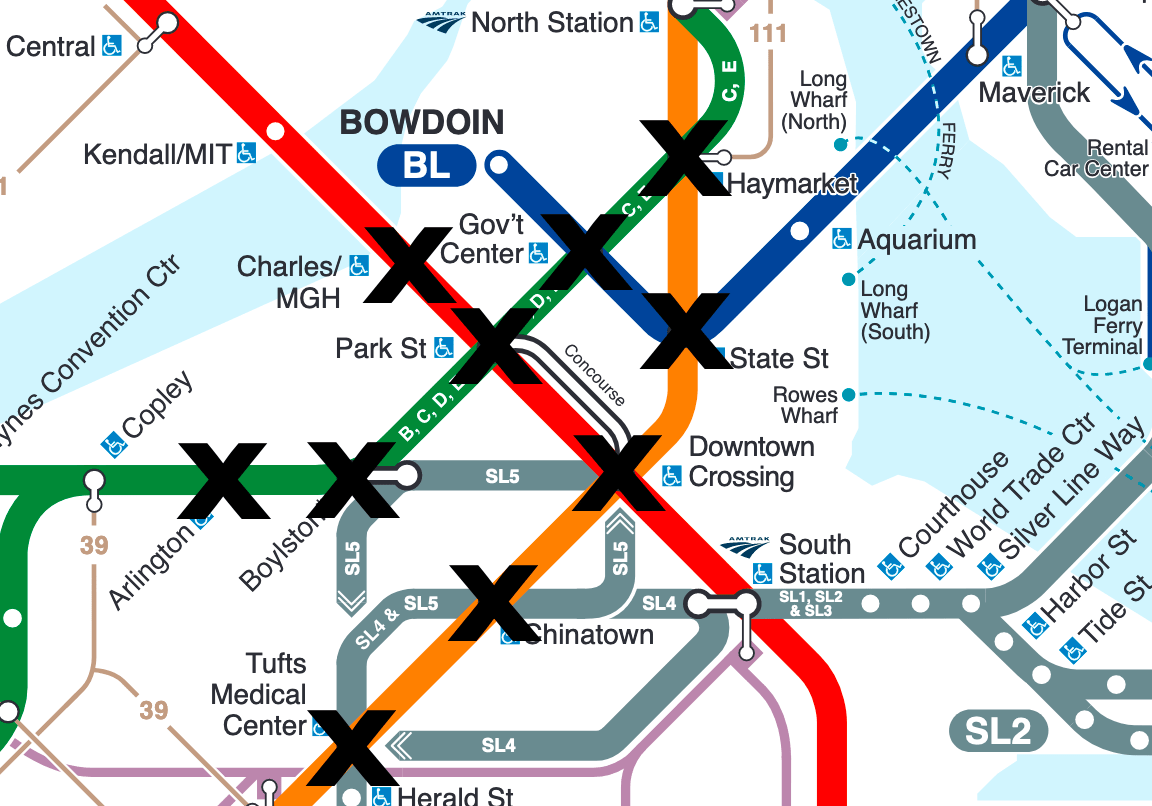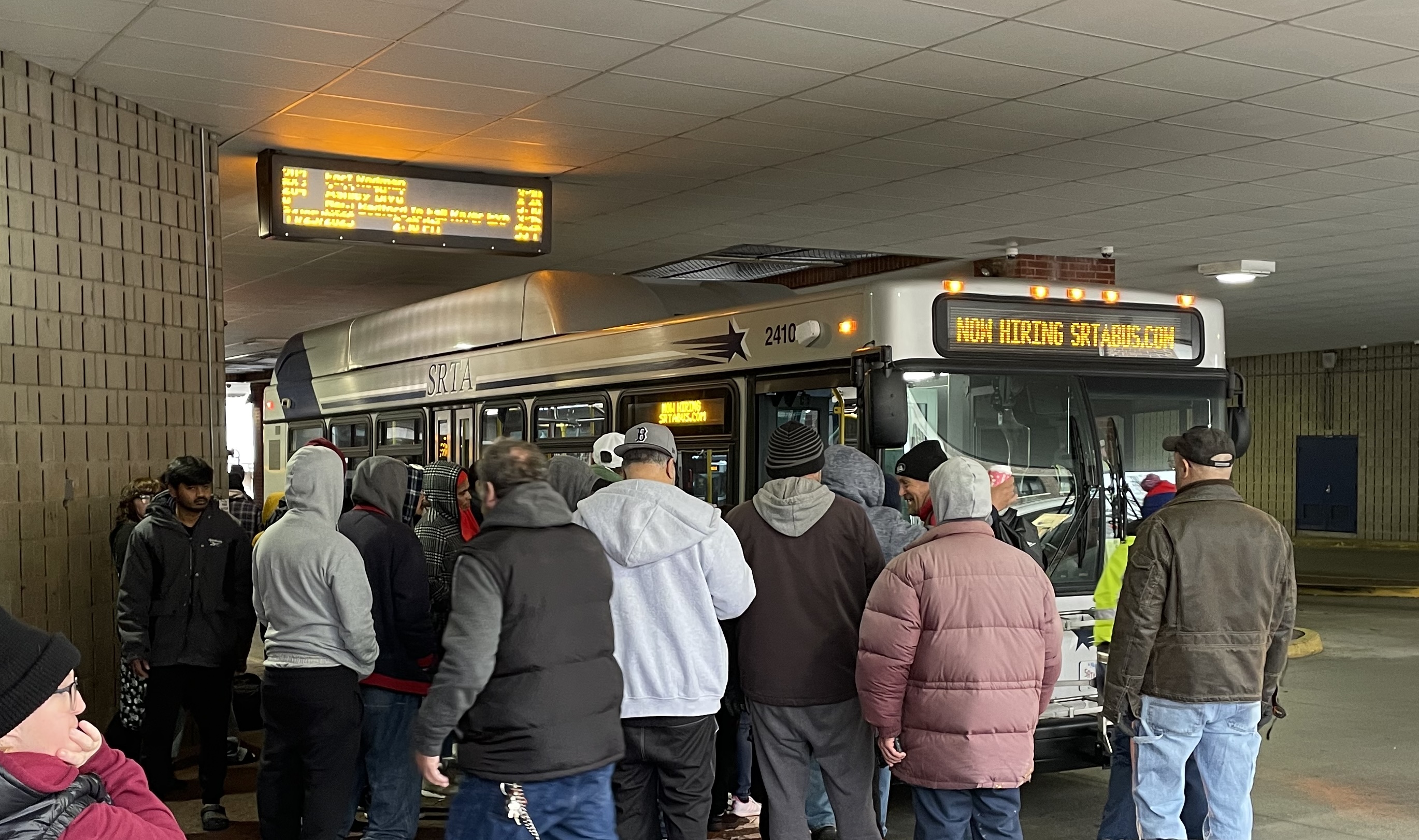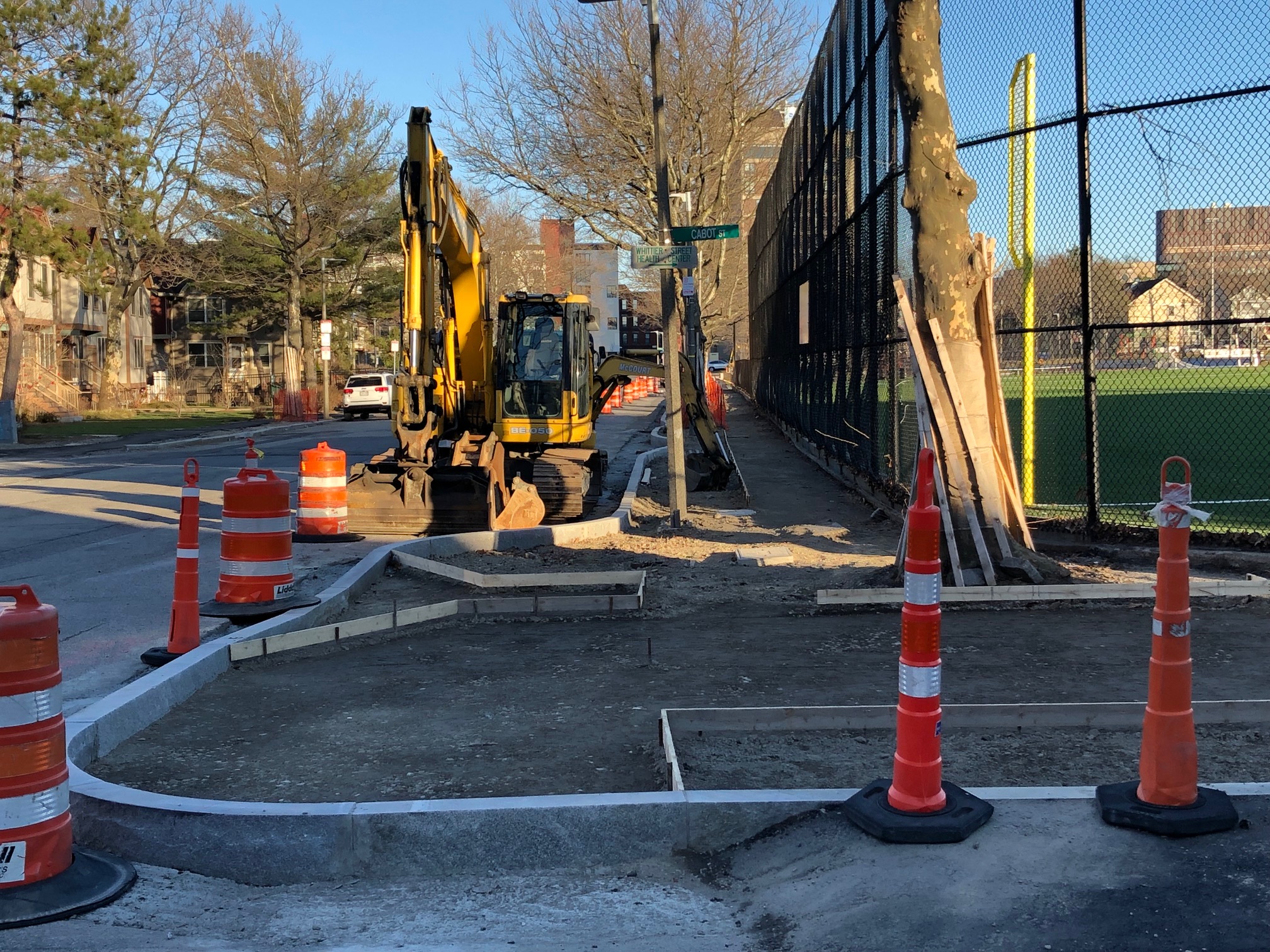Management at the MBTA is facing intense criticism after shutting down core subway stations on recent evenings, leaving thousands of its riders stranded and trapped among the belligerent police forces they were protesting against.
On Sunday evening, thousands of people participated in a peaceful march from Nubian Square to the State House. As night fell and people began to disperse, lines of helmeted police wielding batons confronted the heading out of Common towards subway stops at Downtown Crossing and Park Street.
According to several eyewitness reports, that's precisely when tensions rose, as protesters suddenly found themselves blocked from going home:
- "People seem a little on edge. But I haven’t seen any violence," tweeted WBUR reporter Meghan B. Kelley at 9:08 p.m., just before the subway closures.
- A few minutes later, at 9:22, the official MBTA account tweeted that Park Street and Downtown Crossing, the two subway stops closest to the protest, had been closed.
- By 9:30 p.m., Kelley tweeted that "the situation has deteriorated. I’m outside the common and people are throwing plastic bottles at cruisers."
- At 9:43, a second tweet announced that Government Center, Haymarket, and Chinatown, were closed as well. Over the next 90 minutes, the T also shut down the Blue Line shuttle to East Boston, plus additional stations at Charles/MGH, Tufts Medical Center, State Street, Arlington, and Boylston.
The T closed Park Street and Downtown Crossing again on Tuesday evening, after a smaller rally in front of the State House. There were no service interruptions after a much larger gathering in Franklin Park earlier in the evening.
Many riders have noted the irony of the MBTA shutting down after peaceful protests when the same agency advertises extra service for rowdy sports parades.
In a press statement issued Wednesday evening, MBTA General Manager attempted to defend his agency's decisions.
"On Sunday night, in coordination with local officials and local law enforcement entities, the decision was made to close multiple stations when, in the opinion of the Transit Police Incident Commander, outside activity posed a danger to the safe operation of the station and transit activity," wrote Poftak.
TransitMatters, in a statement of its own issued earlier on Wednesday, condemned the fact that "the power to shut down or block access to transit has been used as a weapon by police against peaceful protesters."
The statement continues:
"Our public transportation system cannot become a tool in the hands of law enforcement officials... If a government imposed curfew is in place, the T needs to operate to get people home. If a police-ordered dispersal order is in place, the T needs to function to allow people to disperse."






